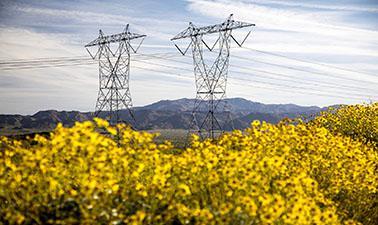MOOC List is learner-supported. When you buy through links on our site, we may earn an affiliate commission.

MOOC List is learner-supported. When you buy through links on our site, we may earn an affiliate commission.
Its fundamental question is: How can the world economy continue to develop in a way that is socially inclusive and environmentally sustainable? This course provides a broad overview of the interactions between the economy and our environment and humanity, from the constraints of finite resources, to the activities that drive climate change, to equality for all.
This course is an updated version of Professor Sachs' popular 2015 course of the same name. It includes new perspectives and a reorientation towards Agenda 2030 and the SDGs.
Join us for this introduction to the tenets of sustainable development, developed by experts on the latest in the social, policy and physical sciences.
This course is for:
- Anyone new to the concept of sustainable development who wants to understand its foundations and its relevance to their life and work
- Graduate students and advanced undergraduate students interested in the key concepts and practices of sustainability and global values
- Sustainable development practitioners - as well as private-sector actors, such as those who work in corporate sustainability and responsibility - who want a concise overview of the latest developments in the field
What you'll learn
- The basics of the Sustainable Development Goals
- The role of people: from inequality, to poverty, to health and human rights
- The role of the planet: planetary boundaries, the value of renewable energy, and sustainable -consumption of our natural resources
- How to help nations, businesses and economies flourish without leaving anyone behind
Syllabus
Module 1: What is Sustainable Development?
- Intro to Sustainable Development (SD)
- Economic Growth & Progress
- Continuing Poverty
- Environmental Threats
- Business-as-usual vs. SD
- From the MDGs to the SDGs: Agenda 2030
Module 2: Economic Development
- Incomes Around the World
- Urban/Rural Inequality
- Income Inequality Within Countries
- Measuring Wellbeing
- Convergence or Divergence
Module 3: History of Economic Development
- Economic Development from 1750
- Industrial Revolution
- Waves of Tech Change
- Diffusion of Economic Growth
- Economic Development Since WWII
Module 4: Inequality Between Countries
- Clinical Economics
- The Role of Physical Geography: Transport, Energy, Disease, Crops
- The Role of Culture: Demography, Education, Gender
- The Role of Politics
- Countries Stuck in Poverty
Module 5: MDGs: End of Extreme Poverty
- Extreme Poverty Can End
- Ending Extreme Poverty in Africa
- Food Supply in South Asia
- Official Development Assistance
- Designing Practical Interventions: Millennium Villages Projects
Module 6: Growth Within Planetary Boundaries
- The Origins of the Boundary Concept: Thomas Malthus
- Neo-Malthusian Frameworks: Growth Dynamics
- The 9 Planetary Boundaries
- Living Within Limits: Energy, Agriculture and Industry
Module 7: Human Rights, Gender Equality
- Ethics: Wealth, Poverty, Inequality
- UN Declarations
- Divided Societies
- Forces of Widening Inequalities
- Gender Inequality & Solutions
Module 8: Education
- Human Development: Life-Cycle Approach
- Early Childhood Development
- Education & the Supply Response
- Social Mobility
- The Role of Higher Ed
Module 9: Universal Health Coverage
- Human Right to Health
- Poverty & Disease
- Designing a Health System in Low-Income Countries
- Healthcare for All
- Health Coverage in High-Income Countries
Module 10: Sustainable Food Supply: the End of Hunger
- Malnutrition
- Farm Systems, Ecology, Food Security
- How Environmental Change Threatens the Food System
- How the Food System Threatens the Environment
- A Sustainable Global Food Supply
MOOC List is learner-supported. When you buy through links on our site, we may earn an affiliate commission.
MOOC List is learner-supported. When you buy through links on our site, we may earn an affiliate commission.
